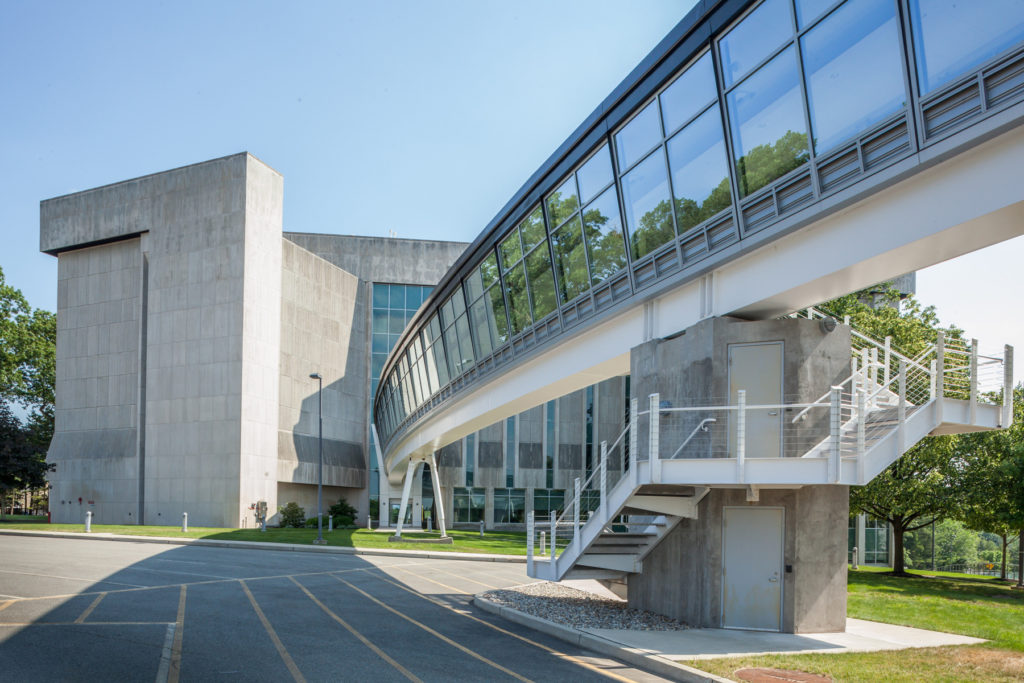The statehouse in Trenton — file photo
By Joshua Burd
With the Grow New Jersey program set to expire in less than a year, the prospect of losing the incentive is already weighing heavily on the state’s commercial real estate market.
The tax credit program has been vital to everything from attracting manufacturing firms to ambitious redevelopment projects at large vacant office campuses. And while there is still time for lawmakers to extend the program before it sunsets on July 1, 2019, stakeholders say the uncertainty is already working against New Jersey.

Ted Zangari, who co-chairs the real estate department at the law firm Sills Cummis & Gross P.C., said businesses that are scouting new locations typically begin their search about 24 months before the expiration of their current lease or some other target date for moving. Such a company would likely narrow its search to a handful of sites about a year into that process, he said, but a business may not bother with a higher-cost state like New Jersey — where incentives are often needed to close the gap — if there is a chance that those programs won’t be available.
Given that all Grow New Jersey applications must be filed by June 30 of next year, that prospect looms larger with each passing day that state officials do not address the issue.
“From an economic development standpoint, that’s really playing with fire,” Zangari said. “The sooner we can give certainty to companies, the better.”
It’s why Zangari said that, “If we’re going to continue to be on the radar of companies that are evaluating multiple states and be in the game for those opportunities, it’s essential for the New Jersey Legislature and the Murphy administration to resuscitate Grow New Jersey as soon as possible.” Otherwise, he said, “we will begin losing opportunities for those companies whose site selection decisions will not be made until next July or later.”
Some businesses may be pushing to get their applications in by the deadline, but Susan Harte, the director of location incentives for CBRE’s tristate region, highlighted a key issue for those companies: They cannot apply for incentives until they’ve identified a specific location in the state as well as a competing location, while they also need to develop a budget and other critical details of the transaction.
Harte said companies that have engaged landlords by now “presumably would have enough time” to develop basic terms. For clients that are not as far along, she said “we’re hoping to get some guidance soon” from state officials, but “right now we don’t have anything on the radar.”

“We’ve been telling our clients that if you’re thinking about this and you’re interested in incentives, now would be the time,” Harte said.
That’s not to say that stakeholders expect to see the program continue in its current form, which was created under the Economic Opportunity Act of 2013. Zangari has led a coalition of business and labor leaders that have called for “mending and extending” the state’s incentives programs in a way that reflects current market conditions. In the case of Grow New Jersey, that would mean scaling back the subsidy amounts for firms that are moving here from a lower-cost state, but still offering them enough of a premium to close the gap and incentivize the move.
For companies that are already here but are considering leaving to another state, Zangari said it’s typically enough for New Jersey to offer an amount that puts both states on par or close to whatever savings they would achieve by moving elsewhere.
Policymakers can find those savings by tweaking the criteria that currently allow applicants to enhance their subsidies, Zangari said. He noted that some bonuses are either too easy to obtain or duplicative: For instance, the program offers a bonus for locations that are distressed municipalities and another for locations that are in deep poverty pockets. Those criteria often overlap and create the potential that a company is getting extra points for what is essentially the same public policy goal.
“Clearly, it would be unwise to end the program,” said Zangari, who also chairs Sills Cummis’ public policy and governmental affairs practice group. “But by the same token, clearly, it would be unwise to keep the program the way it is. It is definitely in need of mending.”
For one thing, Zangari believes it’s necessary to scale back the incentives because of New Jersey’s ongoing debt and budget woes. He said the reality is that the Economic Development Authority, which administers the incentives, must do more with less like all state agencies and departments have been forced to do.
Aside from that, “the reality is the program does not have to be as generous now as it had to be in the midst of the 2008 real estate meltdown, when we had to try harder just to stay afloat visive our competitor states,” Zangari said. “So that market has changed dramatically and the program has achieved its goal by being extra generous.”
For instance, “a market was made where none existed” in cities like Camden and Newark. Large empty office complexes such as the former Bell Labs in Holmdel and the former Hoffmann-LaRoche site in Nutley and Clifton have come back to life as a result of the program, which has also drawn manufacturing businesses to New Jersey from New York City.

The prospect of Grow New Jersey lapsing was on the minds of analysts during a recent earnings call for Mack-Cali Realty Corp., which has benefited from several tenants that received incentives to lease office space and expand at its Harborside complex in Jersey City. Most recently, the REIT inked at 132,000-square-foot extension and expansion with the online brokerage firm E-Trade Financial Corp., which was approved for a 10-year, $20.1 million tax credit package tied to more than 250 new jobs.
Mack-Cali CEO Michael DeMarco seemed optimistic that the program would be extended. He also pointed to the fact that Tim Sullivan, the EDA’s chief executive, has “done a pretty rational job of taking a program that had a little bit of notoriety around it, about some of the allocations, and he made it much more defined” in accordance with Gov. Phil Murphy’s push for a more targeted strategy.
“I think that Gov. Murphy understands that growth is important, especially when you have initiatives involving the use of tax dollars,” DeMarco said. “So I don’t think it’s going to change.”
Zangari said he was “feeling very optimistic” — based on conversations with policymakers — about the chances that the program would be renewed and adjusted in a responsible way. And he said it was important for the state to tweak the programs while still driving public policy goals — such as growth around transit hubs, green building and urban redevelopment — because he has seen companies respond to those incentives when they are considering multiple locations within New Jersey.
“I think those are still laudable goals,” Zangari said. “So in the mending process, I hope the Legislature finds a way to resize and rescale the program, while at the same time driving companies with targeted bonuses to make location decisions within its set of New Jersey choices that it wouldn’t otherwise necessarily be motivated to consider.”










